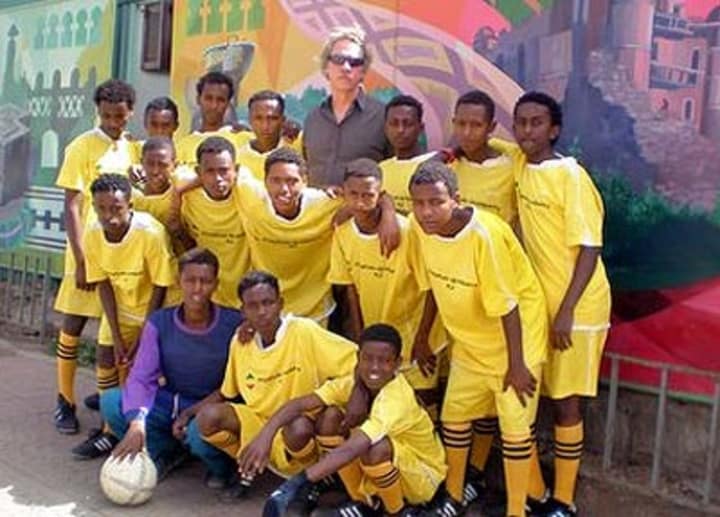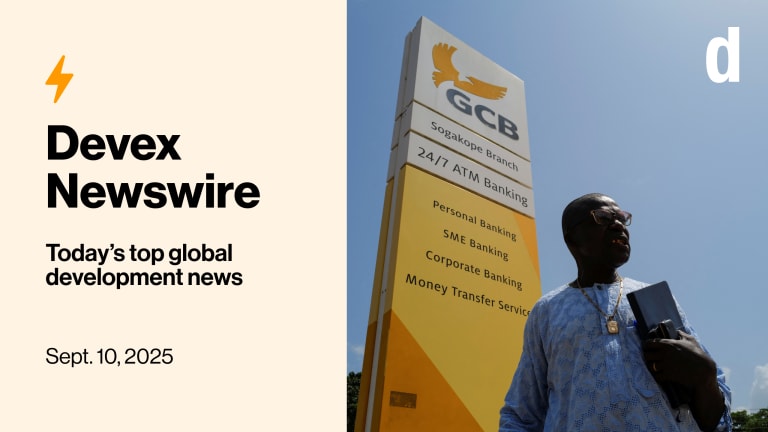
Tony Hickey celebrated his 60th birthday on March 2 this year. The same day marked the 113th anniversary of the Italian Army’s defeat by the people of Ethiopia - which the Irishman considers his second home - in the battle of Adwa.
“As long as I stay in Ethiopia, which I think will be forever, my birthday is a national holiday,” joked Hickey, who is the founder and general manager of Ethiopian Quadrants (http://www.ethiopianquadrants.com), a tour operator committed to improving the conditions of local communities and involved in a number of development initiatives in the country.
Hickey believes that tourism can boost development in poor countries, particularly in Africa.
“Tourism plays a very important role [in the country’s development], although it is not making a full contribution as yet. We’re not doing as much as we could,” Hickey said. “It’s probably the biggest foreign currency earner after coffee, although it doesn’t show always in the statistics, because it’s easier to track, say, how much you earn from exports or for other commodities like flowers. But it is making a contribution. It’s creating a lot of jobs.”
Ethiopia’s tourism industry - hotels, tour operators et cetera - are largely controlled by businesses (and, partly, government) within the country instead of foreign entities.
“Obviously, we have to import all vehicles and so on but it is not dominated by foreign companies,” Hickey explained.
Ethiopian Quadrants employs 15 people in its Addis Ababa headquarters and between 30 and 40 local staff as guides and cooks in different areas of the country. (Hickey employs ten additional staff in a restaurant he owns.)
Aside from its work in tourism, Ethiopian Quadrants also provides consulting services to business operators visiting the country, helps foreign film makers shoot movies in Ethiopia, and supports sports activities to help disadvantaged youth from Addis Ababa’s poor suburbs and surrounding rural areas. It sponsors a football team of young boys as well as the participation of about 30 youth to what is known as Africa’s biggest road race, the Great Ethiopian Run (http://www.ethiopiarun.org), an annual marathon which commenced in 2001 and has been used to raise awareness on HIV/AIDS.
“I’ve been walking up in the mountains in that part of Addis for at least ten years and I’ve met kids around there. Obviously they are poor. Even to buy a football is often difficult, so I sponsor that team, I buy them their football equipment, t-shirts and boots,” Hickey said.
Hickey also helped the local council build sports grounds, and he funds ecotourism efforts in the city of Adwa, as well as the construction of a generator for agricultural purposes in Addis Ababa’s rural surroundings.
“I’d say as a company we have some social responsibilities as well,” Hickey said.
A long road to Ethiopia
Hickey first arrived on African soil in January 1973 after a boat ride from Saudi Arabia’s port of Jeddah to Massawa, the Eritrean city on the Red Sea that was then part of the Ethiopian federation. For two years, Hickey drove tourists around the desert region and across the border to Kenya and beyond. On one of his trips, he met his future wife, who is Ethiopian, and the two of them temporarily left the country in 1975, after the military junta, led by Mengistu Haile Mariam, overthrew emperor Haile Selassie and made it impossible for residents to move around as freely as before.
In the 1980s, Hickey traveled to Sudan, where he met Ethiopian members of the Tigray People’s Liberation Front - who fought against Mengistu’s rule - and started working for them.
Mengistu’s government was using violence and food deprivation to impose its rule over the country’s population. In response, Hickey began to lobby for a relief operation called Cross Border Operation, which channeled aid through Sudan to the TPLF’s aid organization, the Relief Society of Tigray. It was during those years that Hickey began to see tourism as a way to help Ethiopia develop.
“During the war I always advised them: When the war is over we have to start tourism again,” Hickey said.
He really meant it. In 1993, after Mengistu was overthrown, Hickey was chosen by the former rebels - who had just assumed power - to start a tour company called Experience Ethiopia Travel, which belonged to a party trust fund. Five years later, Hickey decided to go private. Along with three business partners, he started a tourist lodge in the Afar region that is still operating today. In 2006, he founded his own company in Addis Ababa.
Who is aiding development?
To Hickey, the private sector is more effective than actual foreign aid agencies in helping countries pursue development.
“Generally, I think we do more, we are more developmental than the aid agencies,” he said. “Most of them live better than I do. They drive the latest models of land-cruisers, they live in very expensive villas, people from international NGOs. I haven’t seen them doing so much work.”
Hickey also argued that international aid groups “have a different agenda most of the time” and blamed them for adding to Ethiopia’s economic troubles.
“They [aid organizations] want to always keep Ethiopia in the image of the 1980s, as needing assistance and so on,” he said. “In fact, they often undermine our work by promoting a negative image of the country, which doesn’t only impact negatively on tourism. It impacts negatively on foreign investment.”
Although he is highly critical of international aid organizations, Hickey has the greatest respect for local non-governmental organizations pursuing development.
“There are very good indigenous NGOs. They operate in different parts of the country and to me they are the best ones,” he said.
Foreign organizations - and local ones funded by organizations outside Ethiopia - have come under pressure due to a new law that limits the amount of funds NGOs can receive from foreign donors and prevents foreign organizations from addressing politically sensitive issues like human rights.
Ethiopians probably welcome the reforms, Hickey said, arguing that the new rules affect mostly large international organizations.
“There are many weaknesses in the law and there are some problems,” he said. “But I’m sure if you had a poll in Ethiopia, 99 percent of Ethiopians would support control for NGOs because they generally have a bad reputation here for wasting money and being ineffective.”




